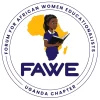Each year, about 295,000 women die from preventable causes during pregnancy and childbirth; Sub-Saharan Africa alone accounted for roughly two-thirds (196,000) of maternal deaths. Women who are most at risk are living, or over the next 15 years will be living in fragile or humanitarian settings.
Women and girls are often more greatly affected in both sudden and slow-onset emergencies and are at increased risk of sexually transmitted infections, including HIV, unintended pregnancy, maternal death and illness, and sexual and gender-based violence.
Unequal gender norms, attitudes and practices play a large role in shaping the negative outcomes associated with maternal health and realizing reproductive rights. They limit women and girls from accessing contraception, family planning, and other essential reproductive health services. omen often face violence and discrimination and are unable to fully participate in society and seek out health services. Therefore, there is need for strategic and targeted responses to improve Sexual, Reproductive, community and religious leaders and women’s rights organizations and will aim to achieve the following three results:
The focus of this result is on the policy and structural issues. It is critical to work with national and local authorities to reform discriminatory laws and policies, address barriers to SRMNCAH care,
information, and ensure availability of resources for SRMNCAH services POWER seeks to ensure that the various commitments ratified and polices in place to support SRMNCAH are applied to humanitarian settings. Both right-holders and duty-bearers will be made aware of their responsibilities and mechanisms will be put in place to ensure there is awareness, capacity, resources and services to deliver on these commitments. For example at the regional level, a policy dialogue will be operationalized to adopt the Social Institutions and Gender Index to address barriers to SRMNCAH in humanitarian settings.
Unequal social norms and attitudes regarding the (sexual and reproductive) rights of women can prevent women from seeking out and claiming vital and life-saving health services. POWER seeks to address the aforementioned socio-cultural barriers that hinder gender equality and access particularly in the unique humanitarian settings. By engaging religious and traditional leaders, men and the wider community, POWER aim to identify solutions and transform unequal social norms.
Maternal, Newborn, Child and Adolescent Health (SRMNCAH) particularly in humanitarian settings to address existing gender biases in the social, cultural, institutional, legal and economic structures that hinder women and children and adolescents to have equal access to health services.
POWER – Program On Women’s Empowerment in Sexual, Reproductive, Maternal, New-born, Child and Adolescent Health rights in humanitarian settings in the Horn of Africa Region
In order to achieve reproductive rights, gender equality and well-being, the barriers that are preventing women, children and adolescents from demanding and realizing their rights to SRMNCAH services must be addressed.
POWER will contribute to UN Women’s overall goal, every woman, every child, every adolescent girl, everywhere demands her rights to quality SRMNCAH services, particularly in humanitarian settings. POWER will be implemented together with key stakeholders, including government, UN agencies.
By engaging women as agents of change and increasing their awareness and knowledge of their SRMNCAH rights as well as enhancing their capacities to know and advocate for those rights; women are more likely to demand and claim their SRMNCAH rights. POWER will work in humanitarian settings with capacity building of women as well as working with women leaders and gender equality champions to promote women demanding their rights.
